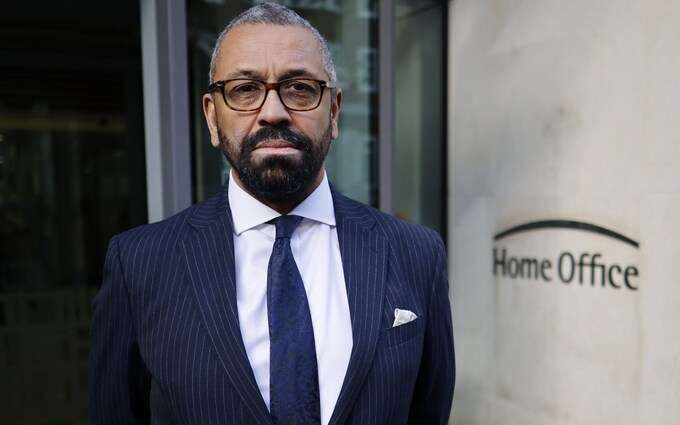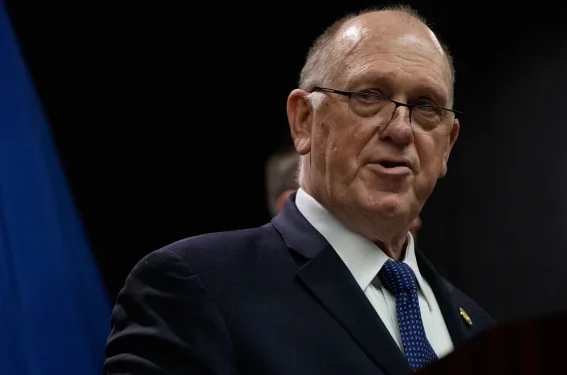In the race for the Conservative leadership, James Cleverly faced tough questions regarding his proposal to scrap stamp duty on house sales, a move that has drawn comparisons to the economic policies of former Prime Minister Liz Truss.
Despite being pressed multiple times, Cleverly refused to distance himself from the financial turmoil that unfolded under Truss’ leadership, defending his plan as a necessary step for a more dynamic economy.
During a tense interview, Mishal Husain suggested that Cleverly’s £10 billion pledge to abolish stamp duty was reminiscent of Truss’ disastrous mini-budget, which contributed to market instability.
Husain remarked that the plan was “the kind of thing” that the former prime minister had proposed before her resignation after just 49 days in office.
Cleverly, undeterred, pushed back, asking: “Are you seriously suggesting a prospective leader of the Conservative Party should not envisage any tax cuts in our society?”
He challenged the notion that past failures should prevent future leaders from proposing similar policies, adding, “This is why we have the highest tax burden since the (Second World) War.”
Comparisons To Truss’ Leadership
When Husain pressed further, Cleverly reiterated his stance, emphasizing that Britain is currently overtaxed. He argued that without a reduction in taxes, the UK economy risks stagnation, and public services would be under threat.
“We are taxed too highly. If we as Conservatives are not prepared to make the case for a more lightly regulated, taxed, faster-growing economy we will not be able to afford the public services people rely upon.”
James Cleverly
Cleverly pointed to stamp duty as a policy that he believes has stifled the housing market, arguing that his party should “have the courage” to cut taxes to stimulate growth.
He maintained that cutting taxes would lead to a “genuinely vibrant, high-paid economy,” insisting that the Conservative Party must act before the economy is stifled further.
However, critics of the proposal have drawn clear parallels between Cleverly’s plan and the policies of Truss, whose mini-budget caused chaos in financial markets, leading to a sharp drop in the value of the pound and soaring borrowing costs.
Truss’ fiscal plan, which included tax cuts and a rise in the stamp duty threshold, was largely reversed by her successor, Jeremy Hunt, in an effort to stabilize the economy.

Optimism And Conservative Values
Addressing comparisons with Truss, Cleverly acknowledged the challenges ahead but called for a return to optimism and traditional Conservative values. Speaking at the Conservative Party Conference, Cleverly urged his fellow party members to embrace a positive outlook.
“Let’s be enthusiastic; relatable; positive; optimistic. Let’s sell the benefits of a Conservative government with a smile.”
James Cleverly
In his speech, Cleverly emphasized the importance of homeownership, citing his father’s experience of buying a home as a symbol of the party’s belief in personal responsibility and prosperity. He also reflected on his mother’s work as a midwife, presenting a vision of the Conservative Party that is both future-focused and grounded in service to the public.
“What can be more optimistic than helping people buy their own home like my Dad did? Or bringing thousands of new-born children into the world like my Mum did?”
James Cleverly
As the leadership race heats up, Cleverly’s refusal to disavow Truss’ economic approach could prove a dividing line within the Conservative Party. Whether his emphasis on optimism and a low-tax future resonates with party members — and voters — remains to be seen.
READ ALSO: Non-payment of Salaries to Zoomlion Workers Irrupts Public Outrage






















